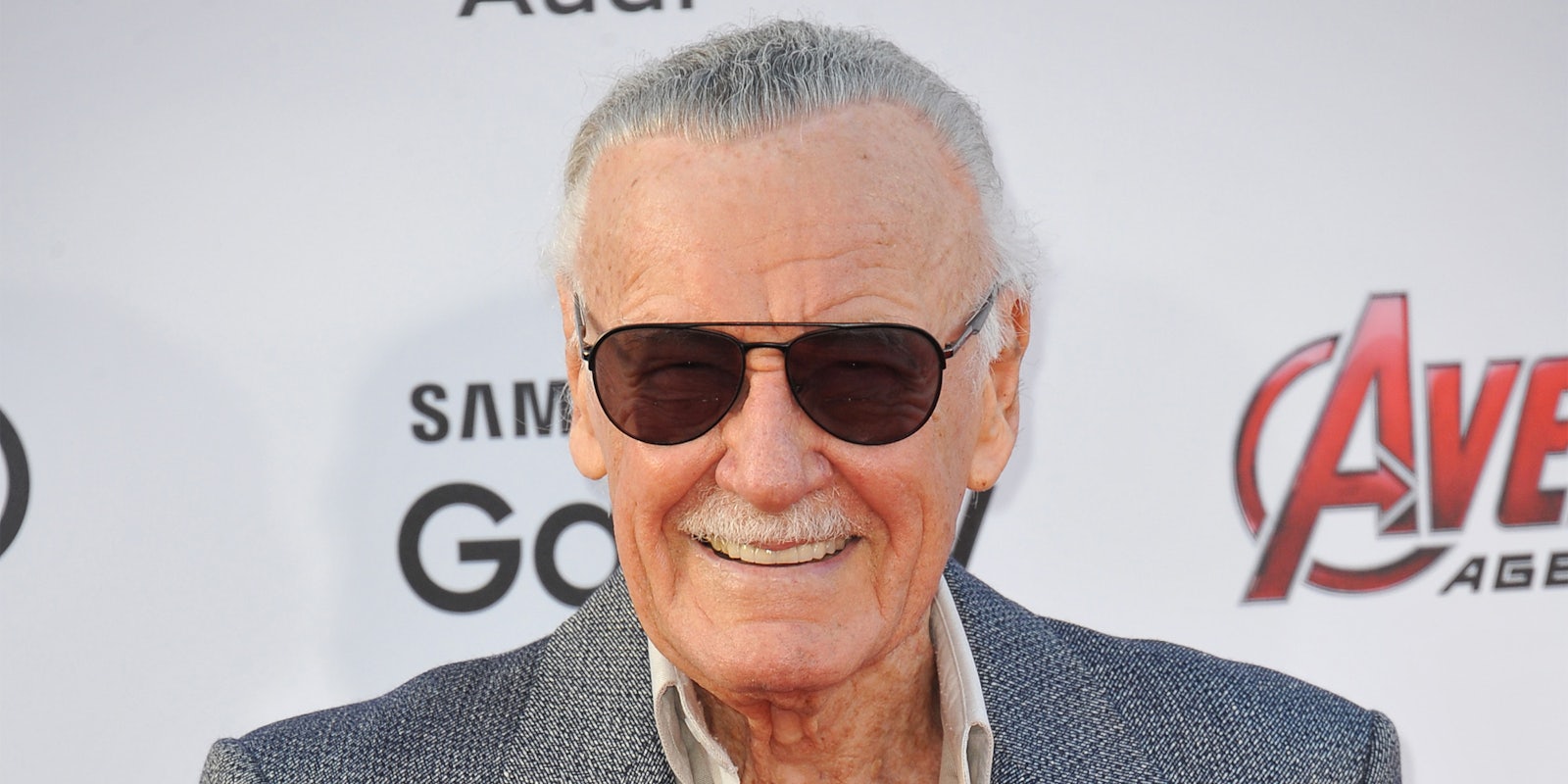The legend of Stan Lee is almost bigger than life itself, which is evident throughout most of David Gelb’s (Jiro Dreams of Sushi, Marvel’s 616) new documentary Stan Lee. Almost entirely chronicled by Lee himself through archival interviews from over the decades (and occasional archival footage), Stan Lee sells a rags-to-riches story, one where he and his collaborators, which included Jack Kirby and Steve Ditko at Marvel’s peak, got the chance to reinvent the wheel several times over and laid the groundwork for what Marvel Comics is today.
Director: David Gelb
Streaming: Disney+
The origin story of one of Marvel Comics’ most famous figures is almost entirely told in his own words. Designed as a loving tribute, ‘Stan Lee’ is uninterested in exploring any of the thornier aspects of Lee’s life—or really anything below the surface.
In reality, Lee’s legacy is much more complicated, far from the late-in-life triumphant note that his status as Marvel’s beloved figurehead—bolstered by his many, many cameos in the Marvel Cinematic Universe—would indicate. His final years were rife with controversies, fraud allegations, accusations of sexual harassment, and reports that Lee was a victim of elder abuse and was being exploited by those in charge of his finances. (Lee’s ex-manager would settle with Lee’s estate months after Lee’s death in November 2018.)
While Lee is credited with creating or co-creating hundreds of Marvel characters, there has long been debate from those who argued they had a hand in it. According to other comics creators at the time, he often clashed with writers and artists on working conditions, arguing in favor of Marvel’s management (and the working conditions for the people who make comics is even worse now).
And Stan Lee is interested in exploring almost exactly none of that. Like Gelb’s 2021 documentary Wolfgang (about the famed chef Wolfgang Puck), it prefers to paint a more sanitized success story sans warts than explore any of those avenues. It’s a celebration of Lee’s life and legacy, but it’s hollow.
If you know the basics about Lee’s life and his work in comics, Stan Lee won’t convey anything you don’t already know. For the complete novice, it’s a fairly compact overview of Lee’s life. Gelb mostly allows Lee to tell the story of his life in his own words, with quotes from collaborators like Kirby, Ditko, Timely Comics’ Joe Simon, Flo Steinberg, Marvel Studios head Kevin Feige, and Lee’s wife Joan, to fill in some of the gaps.
When there isn’t footage to illustrate certain events in Lee’s life, Stan Lee goes for a fun and inventive alternative with the help of figurines used in a similar way to how enthusiasts might shape models of characters from their favorite movie or show. Instead of superpowered beings in costumes, it’s people like Lee, and to smaller extents, Kirby, Ditko, and publisher Martin Goodman, who are shown in heroic poses while still feeling realistic.
And that realism is well in mind when Lee (born Stanley Leiber), on the edge of burning out after working for Timely Comics since he was 17 and tasked with creating a group of heroes after DC Comics’ success with the Justice League of America, made the Fantastic Four. For all of the fantastical that could come with superpowered beings, he wanted to see superheroes in real situations (and in a real city like New York, unlike DC’s fictional Gotham or Metropolis). In one early comic, he wrote about the Fantastic Four losing their headquarters because they couldn’t pay rent; in another, Spider-Man was awarded a check for saving the day and couldn’t cash it because he didn’t have proper identification to give bank tellers.
When writing female characters like Mary Jane Watson, Lee attributed some of her characteristics to his wife Joan, to whom he was married for 69 years until her death in 2017.
“The more I realized how influential our books were, the more I tried to get some moral lessons in the stories,” Lee says. “I don’t wanna sound like I’m the most moral guy in the world, but I always felt there were some issues that ought to be addressed.”
Stan Lee details some of those instances, from creating the X-Men and Black Panther, to adding in more female superheroes when he was promoted to publisher and writing a comic in which the villains were essentially the Ku Klux Klan. He also published a comic without the Comics Code Authority seal of approval because it featured drugs in it (even though the comic had a clear anti-drug message).
In the closest thing to criticism that the documentary reaches, it also includes the differing opinions between Lee and Ditko over who created Spider-Man, including audio from an infamous 1987 interview where Lee initially called to wish Kirby a happy birthday but devolved into an argument over credit that not even the radio host could diffuse.
Stan Lee is a heroic effort, ending triumphantly with the newfound love he got through his MCU cameos. But like some heroic depictions, the broad strokes are inherently less interesting than what might’ve been if you had added those shades of nuance instead.
Stan Lee debuted at the Tribeca Festival on June 10 and will drop on Disney+ on June 16.

